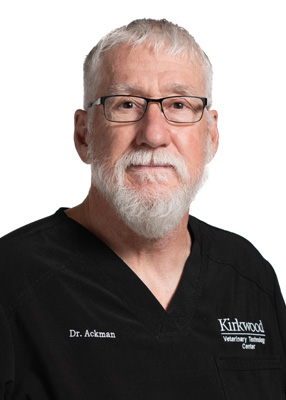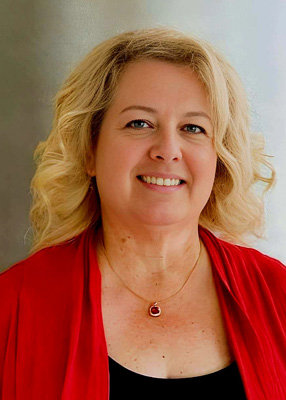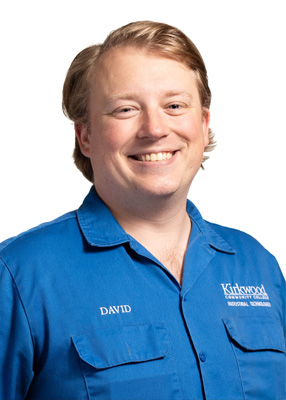Endowed Faculty Chairs
A Note from Our President:
I am amazed by the work being done by the Kirkwood faculty on a daily basis. Their passion for supporting student success is truly inspiring. It’s that high level of commitment to those we serve that has helped make this college one of the premier two-year institutions in the country.
The Endowed Faculty Chair awards support our faculty so they can continue to grow as educators to ensure our students receive the highest quality education possible. These awards are an investment in those who teach that will pay huge dividends in student success for years to come.
Dr. Kristie Fisher
What Are the Endowed Faculty Chair Awards?
The Endowed Faculty Chair awards were initiated to honor retiring President Dr. Norm Nielsen in December 2004. Endowed Faculty Chairs provide an opportunity for selected faculty to undertake professional development projects in their disciplines or in instructional pedagogy through writing, preparing, and presenting a special lecture, conducting research, or pursuing other opportunities.
The emphasis is on personal and professional growth and is separate from assigned duties, routine work, or service to the department.
The goals for the Endowed Faculty Chair program are to:
- Encourage faculty to pursue educational challenges with creativity and innovation
- Promote academic quality by supporting faculty commitment to educational and pedagogical excellence
- Promote the college’s name in connection with educational excellence
- Bring community leaders and faculty together in a commitment to excellence in education
The Endowed Faculty Chair program is a major effort by the Kirkwood Board of Trustees and the Kirkwood Foundation Board to demonstrate their commitment to quality instruction by recognizing and fostering instructional excellence and lifelong learning.
2024 – ’25 Endowed Faculty Chair Award Winner
Finn Kolsrud
Assistant Professor, Sociology
This Place Is For Me: Facilitating Student-Driven Dialogue at Kirkwood Community College
Deliberative dialogue is a process by which individuals can discuss complex social problems, finding common ground where possible, and weigh costs and benefits of various solutions. This project aims to expand the role of deliberative dialogue on campus. Whether it is in the classroom setting or at co-curricular learning events, active, regular participation in deliberative dialogues on college campuses build a sense of community and belonging.
The project involves recruiting and training a cohort of students to convene and moderate deliberative dialogues on campus. In addition, the project involves piloting a “request for dialogue” system. Faculty, staff and student organizations can utilize this system to convene a dialogue facilitated by the cohort of trainees. The hope is that the project will be sustainable, giving students opportunities for dialogue training and facilitation year after year.
2025 – ’26 Endowed Faculty Chair Recipients
Henry B. and Patricia B. Tippie Endowed Chair
Todd Saville
Professor/Coordinator, Financial Services
Mindful Money Matters in a Mass-Consumption Society
In today’s predominant immediate gratification, “spend rather than save” society, this project is designed to help students better understand the psychological, philosophical, behavioral, and social forces driving their financial decisions and purchases. The project asks and explores a simple, fundamental question: Is financial well-being primarily a matter of literacy (knowing what to do) or responsibility (having the discipline and awareness to act on that knowledge)?
By researching and gathering information and insights from behavioral economics, psychology, philosophy and personal finance, the project goal is to unearth and analyze the patterns and influences shaping financial decisions and offer practical strategies, decision-making frameworks, and behavioral insights to help students create and/or improve their financial habits and money mindset.
Kirkwood Endowed Faculty Chairs
Randy Ackman
Professor, Animal Health Technology
Animal Anatomy Prosections
Kirkwood Veterinary Technology currently uses undissected preserved feline cadavers for our Animal Anatomy and Physiology I course. With the recent closure of Iowa City Campus, we were able to procure 55 cadavers and a large cooler from the Human Anatomy Lab. This is a huge repurpose of resources for our program.
Our program is currently going through a curriculum revision with this course and Animal Anatomy and Physiology II. In the past, we have taught anatomy in AP I (lab) and physiology in AP II (no lab). We have incorporated a lab with AP II. It is my opinion that students would have better retention of the material if anatomy and physiology were taught concurrently and that is the reason for the move to change the curriculum.
My proposal is to dissect these specimens and preserve them so that they can be used year after year. This will allow the student to specifically focus on learning content and not dissecting. I would dissect multiple cadavers to separate and identify specific body regions (i.e. muscles of the forelimb, muscles of the thoracic cavity). These prosections can be labelled, stored, and retrieved for classes. The dissected specimens can also be imaged so that they can be used for formative and summative testing.
This project will hopefully help reduce the apprehension and anxiety our students have with using feline cadavers specimens. Students will better be able to visualize and study the complexity of animal anatomy, enhance their ability to identify and comprehend structures in three-dimensional space. We can reduce the number of specimens needed going forward. This is a project that will be available for current and future instructors in our program.
Terri Cronbaugh
Assistant Professor, Nursing
Implementation Tool for Clinical Judgment Model
Nursing education is not only teaching students how to perform tasks; it is about shaping competent, confident professionals who can think critically, adapt to complex situations, and make sound decisions under pressure. This project introduces an innovative worksheet designed to help nursing students develop and refine their clinical judgment skills, a core competency in healthcare. The worksheet aligns with the Clinical Judgment Measurement Model (CJMM), a nationally recognized framework to teach, assess, and measure the development of clinical judgment skills of nursing students. While this is an excellent model, there are no tools provided to implement the model or truly measure clinical judgment. The worksheet serves as both a learning and assessment tool, providing students with a structured way to approach clinical scenarios, reflect on their decision-making processes, and evaluate their outcomes. It bridges the gap between theory and practice by encouraging students to apply theoretical knowledge to real-world situations, preparing them for the complexities of clinical environments. Clinical judgment is imperative for safe clinical practice and is the most appropriate concept for determining new nurse graduates’ ability to transition from academia to patient care.
Sondra Gates
Professor, Communication
English in the Age of AI
Generative AI has already revolutionized the practice of writing, with professionals in all disciplines relying on tools like ChatGPT to create communication, reports, and summaries. This transformation profoundly affects the discipline of English, in which teaching students to use and understand language is the very subject matter. This project will investigate recent scholarship in the English discipline to determine what those experts say about four crucial questions:
- How should the learning outcomes of writing classes change in the age of AI?
- Is it possible to determine the extent to which a student has used AI in a piece of writing? If so, how?
- What should AI policies look like in a composition class, where use of language is itself the subject matter?
- What types of writing assignments best support student learning in the age of AI?
The information will be shared with colleagues in English and throughout Kirkwood, to help us make informed decisions about how to adapt to a world in which AI writing is becoming the norm.
David Jennerjohn
Assistant Professor, Industrial Maintenance Technology
Launching Innovation: Designing the Future of S.L.S
I’m exploring a new way to launch spacecraft using electromagnetic power instead of traditional rockets. The goal is to create a more sustainable and efficient launch system by combining electromagnetic propulsion, modular design, and concepts from Hyperloop technology. This project will test whether this idea could be a practical alternative to current launch methods.
The project will be conducted in two phases. The first phase will focus on research, feasibility calculations, and conceptual design, ensuring a strong theoretical foundation. The second phase will involve building a prototype propulsion module and design a model rocket testing system to compare this new launch concept with conventional rocket technology. The effectiveness of this project will be evaluated through prototype testing, performance analysis, and educational demonstrations, with results shared through faculty workshops, student engagement activities, and eventually even professional publications.
Timothy Robbins
Assistant Professor, English
Building a Culture of Critical Generative AI Literacy in Kirkwood's Writing Curriculum
There is a specter haunting college writing: the specter of Large Language Models! Chimeric texts spawned from the seeming sorcery of ChatGPT, Gemini, and Copilot haunt Learning Management Systems across higher education. But even if the ghosts inside the machines aren’t technically “writing,” - only predicting word sequences from language patterns extracted from the world wide web - college instructors resist the zeitgeist at our peril.
This research project at the intersection of writing studies and generative AI seeks to explore, map, and implement best practices for using, studying, critiquing, and incorporating these tools across the writing curriculum at Kirkwood Community College. The research will yield a repository of AI-integrated lesson plans, assignments, and source material, guidelines for ethical AI use in academic writing, and standing workshops and training sessions for faculty and students on critical AI literacy. Ultimately, the objective is to build a culture of critical AI literacy and contribute to Kirkwood’s reputation as a leader in innovative, technology-enhanced education.
Endowed Faculty Chairs are Supported by the following Donors:
The Allsop Family
Diamond V
The Mansfield Trust
The Rohde Family
Ruffalo Noel Levitz
Henry B. and Patricia B. Tippie
Transamerica
UnityPoint Health - St. Luke’s Hospital
Kirkwood Foundation
We are grateful to the Endowed Faculty Chair donors and their dedication to supporting excellence in the classroom.
For more information about creating an Endowed Faculty Chair in honor or memory of someone special, contact Jody Pellerin at 319-398-5409 or jody.pellerin@kirkwood.edu.
Kirkwood Foundation
The Kirkwood Foundation exists to bridge the gap between the needs and resources of Kirkwood Community College and its students.
www.kirkwood.edu